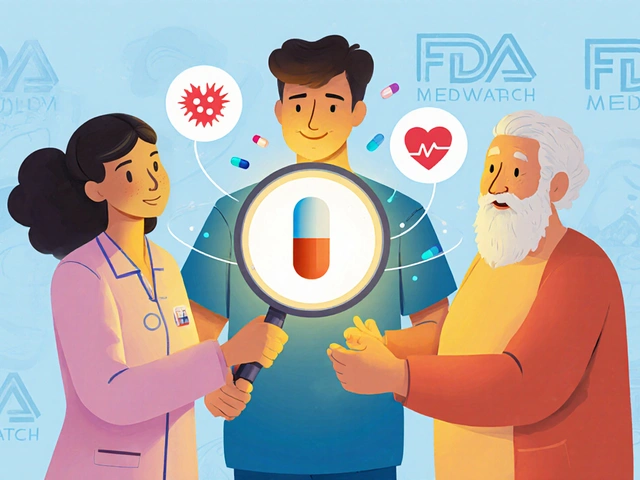Discussing STIs: Clear, Practical Steps You Can Take Today
STIs are common and often quiet — many people don’t notice symptoms. That can make them scary, but knowing what to do cuts the risk fast. This guide gives straightforward steps for testing, treating, and preventing STIs, plus tips on getting medicines safely if you need them.
Testing and treatment: what to expect
If you think you might have an STI, get tested. Testing is quick: urine, blood, or swabs depending on the infection. Tell your clinician what kind of exposure you had and when — that helps pick the right test. Some infections, like chlamydia or gonorrhea, are treated with antibiotics (doxycycline, azithromycin, or ceftriaxone depending on the bug). Syphilis usually needs penicillin. Viral infections such as herpes or HIV are managed with antiviral drugs or long-term therapies.
Don’t self-diagnose. Symptoms like unusual discharge, pain during sex or urination, sores, or swollen glands are signals to test, but many infections have no symptoms at all. If you test positive, follow the exact medication course your provider prescribes. Stopping early or taking the wrong drug can make the infection harder to treat later.
Preventing STIs and getting care online
Prevention matters: condoms lower risk for many STIs and are easy to use. Vaccines exist for HPV and hepatitis B — get them if you’re eligible. For people at high risk of HIV, PrEP is a strong prevention option. Regular testing matters if you’re sexually active with new or multiple partners.
Thinking of buying medication online? Pick licensed, reputable pharmacies. Check for clear contact info, a real pharmacist, and registration or accreditation. Avoid sites that don’t require a prescription for prescription drugs, sell suspiciously cheap pills, or pressure you to buy fast. If in doubt, ask your clinician for pharmacy recommendations or use well-known services that verify prescriptions.
Tell recent partners if you test positive so they can get tested and treated. Most local health departments will help with anonymous partner notification if you want privacy.
Watch for signs that need urgent care: high fever, severe pelvic pain, heavy bleeding, or spreading sores. Those require immediate medical attention. If you’re pregnant or planning to be, tell your provider — some STIs affect pregnancy and need special treatment.
Want reliable info or help finding safe meds? Our site covers how to spot trustworthy online pharmacies, medication guides, and drug safety tips. If something feels off — a website, a pill, or a medical claim — pause and check with a licensed provider first. With the right testing, honest treatment, and simple prevention, STIs are manageable. You don’t have to figure it out alone.
Talking to your partner about Trichomoniasis can be a sensitive topic, but it's essential to have an open and honest conversation. To ensure a smooth discussion, approach the subject calmly and choose the right time and place. Be sure to educate yourself about the infection beforehand, so you can provide accurate information and answer any questions your partner might have. It's important to emphasize that Trichomoniasis is a common and treatable condition. Lastly, discuss the importance of getting tested and treated together to prevent reinfection and maintain a healthy relationship.
View Details

